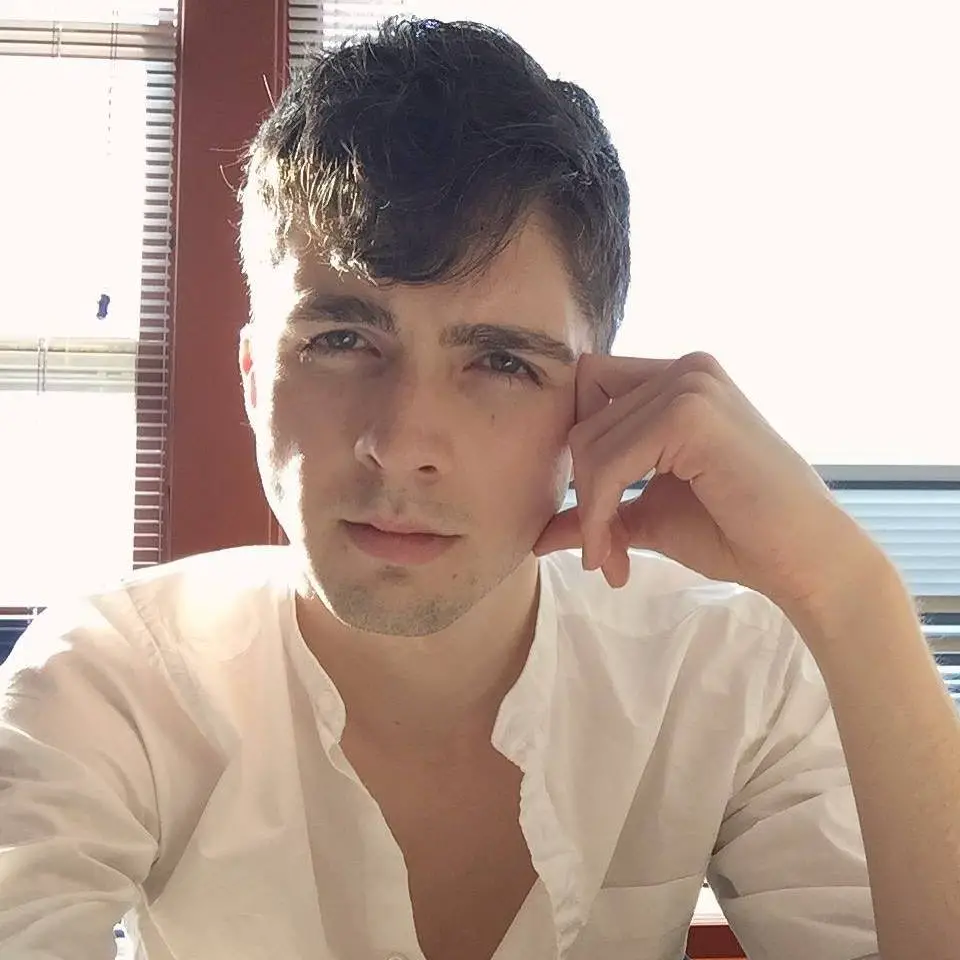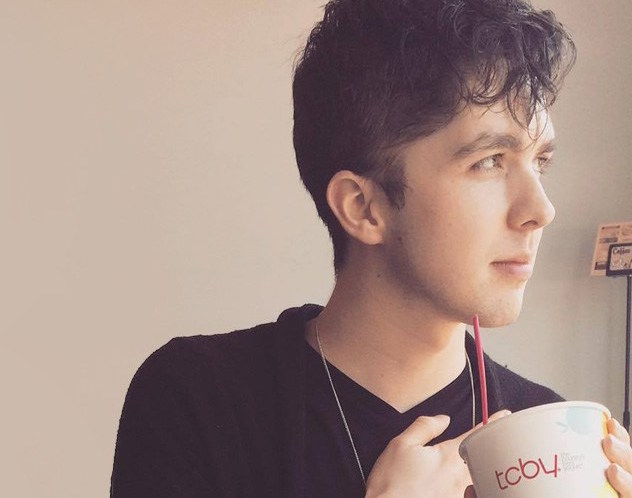Spencer Spotts is leading the charge at Colorado College to ensure that all students are treated equally. When Spotts, now a senior, first arrived on campus, there was a crucial lack of resources for LGBTQ students. Over the course of his four years there, he has worked tirelessly to make his campus a more equitable and accessible place, particularly for those in the queer and trans community.
Spotts has helped to expand gender-neutral housing and bathrooms, create a number of programs for queer and trans students, as well as work to help LGBTQ freshman adapt to college life.
I was lucky enough to chat with him recently about his work with the gay community, as well as his plans for after graduation.

Devin Ross: You work for the Residential Life Office—what is it that you do there?
Spencer Spotts: My job is to ensure the health and wellness of students, as well as to create educational programing and ensure that everyone is receiving some sense of community and support.
Last year, I also sat on our gender-neutral housing committee, which aimed to expand our gender-neutral housing options on campus. I also worked on developing and bringing back a new version of a LGBTQ-themed housing for freshman and sophomores.
DR: How were protections for LGBTQ students when you first arrived on campus, and have you seen them improve since?
SS: Oh, they have definitely improved. The reason I actually became so involved was because my freshman year, I did not have a very pleasant experience in the dorms regarding my identity. At the time, I realized I needed to educate myself a little bit about how the university structure worked before I became active in creating change.
My junior year is when I really started. We got a new director in our department who really took a lot more initiative to ensure that queer and trans students had safer options for housing—not just safer, but more comfortable and more equitable.
We saw an increase in training, ane developed the trans-themed housing community and Gender Housing Committee, which oversaw the redesign of bathrooms to ensure that they were more trans and queer friendly. So, they definitely have improved.
DR: You also work for the Office of Admissions, where you have fought for trans-inclusive campus facilities. Can you tell me a little bit about that?
SS: This is my third year in the Office of Admissions. I plan all of our events for visiting students who attended overnight programs or day-long programs, and through that I had a lot of support from my supervisor over the last few years to ensure that our programs are more queer and trans friendly.
Before, I was noticing a huge gap there, so we have included more gender pronouns in our registration process, as well as in event check-ins and nametags.
We have also done a lot of work to see that the main facilities be used during our events, as well as making sure that they are trans friendly and that single-cell restrooms are available.
Also, we have an overnight hosting program where we worked closely to ensure that trans students were being matched with hosts who were trans friendly, and that visiting students had more options to make sure they were in a situation that matched their gender identity and made them feel comfortable.
DR: Aside from LGBTQ matters, you are also interested and involved in sexual health and anti-violence efforts. Do you see your role as overlapping in that space?
SS: Oh, absolutely! That overlap is where most of my efforts on campus are directed, and where most of my interests lie. Obviously, there is a direct relation between sexuality and sexual health; we know LGBTQ communities face a lot of disparities there.
Overall sexual health education is lacking at a lot of high schools and universities, as there are just not many comprehensive queer and trans inclusive sex-ed courses.
This lack of knowledge can be very dangerous to students and their health, especially in the sometimes hyper-sexed environment of a college campus.
From research we know that LGBTQ communities experience intimate partner violence at a higher rate than those outside the communities. So, as a queer person myself, and someone who is a survivor, my experience in college was always an overlap of those two. Although some resources on campus were very queer friendly, our sexual assault response was a particularly fantastic resource overall.
I’ve also done a queer sex-ed program that is queer and trans inclusive, as well as developed a yearlong workshop about healthy relationships, and always make sure that they are as inclusive as can be. It’s an area that is often not thought about, and outside the community there is a lot of discomfort and tension about how we talk about this topic, which is partly because there are already so many stereotypes about sex, sexuality and normativity against queer and trans people.
DR: Can you tell me a bit about the peer-to-peer queer sexual education programs you’ve led?
SS: I attended a workshop two years ago at American University, and they had started their own peer-to-peer queer and trans sex-ed programs, and I fell in love with it and was really inspired; it was exactly what I wanted to do on my campus.
So, I took resources from that and made it my goal to get a comparable program running on my campus. Last year it got off the ground for first time, and it was a huge success.
We had a lot of people turn out, because we really advertised it as a safe, conventional space and not too formal. We had a presentation and information, but it was also a very conversational space, where queer and trans students were able to express some of their concerns and fears.
DR: How has your experience of going to college helped your growth as a person? Were you involved in LGBTQ issues before college?
SS: That’s a really interesting question, because I wasn’t actually involved in LGBTQ issues before I came to college, but my experiences in high school led me to want to become more involved.
My junior and senior years of high school were really rough for me, as I was trying to find my own queer identity. As I started to come out to more people, especially my family, it was not a very healthy or positive experience, so I knew when I got to college that I would find a place that was safe for me, and eventually help students that were going through similar troubles.
A long-term project I’m working on is going to help LGBTQ students who face rejection by their family during college.
I realized there are a lot of students experiencing the same things, and schools weren’t talking about it. Through doing that work, I’ve learned a lot about empathy, connection and how much it matters to have someone with whom you can relate. My advisor told me, “Be the person you needed when you were younger,” and that has always stuck with me.
DR: What are your plans after graduation?
SS: I’m planning on working a few years before going to grad school, where I’m looking to go into the domestic assault and sexual violence advocacy field. I’m hoping to do some work there, making it a little more queer and trans friendly because, outside of the college setting, there are very, very few resources for that demographic.
Eventually I want to go back to grad school for my masters in social work, but the long term goal is to be a counselor for queer and trans youth, especially those experiencing family rejection or sexual violence.














